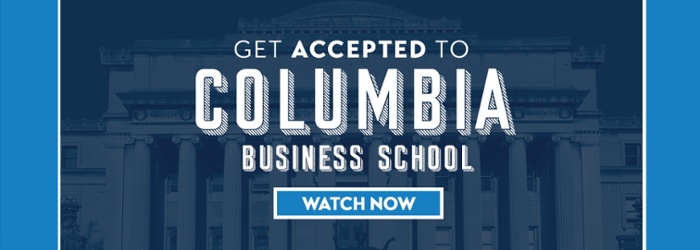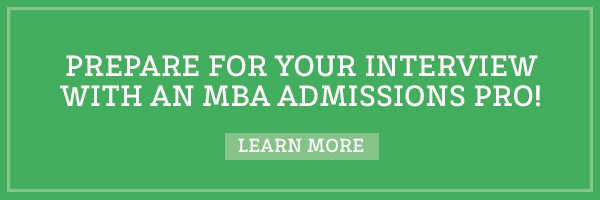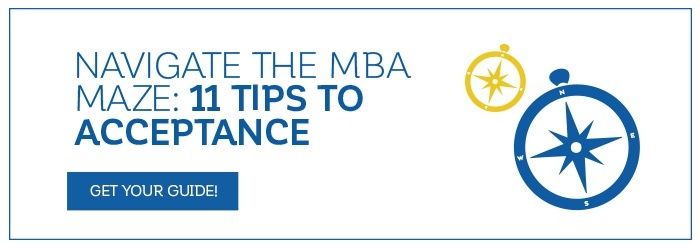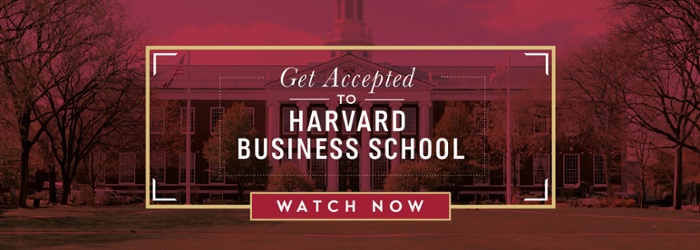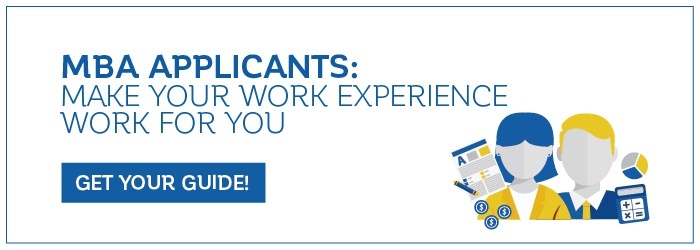Events & Promotions
|
|

GMAT Club Daily Prep
Thank you for using the timer - this advanced tool can estimate your performance and suggest more practice questions. We have subscribed you to Daily Prep Questions via email.
Customized
for You
Track
Your Progress
Practice
Pays
Not interested in getting valuable practice questions and articles delivered to your email? No problem, unsubscribe here.
- Nov 20
07:30 AM PST
-08:30 AM PST
Learn what truly sets the UC Riverside MBA apart and how it helps in your professional growth - Nov 20
10:00 AM EST
-10:30 AM EST
If you’re applying to Columbia, NYU Stern, or Yale SOM, you need more than strong stats. Each school defines “leadership” differently, and your essays must reflect that. Join Sia Admissions founder, Susan Berishaj on November 20th - Nov 20
09:00 PM IST
-10:00 PM IST
Join our free expert-led Essay Workshops to discover how to choose impactful stories, highlight your core values, and align your background with each school’s distinct culture, making every word truly count. - Nov 21
08:30 AM EST
-09:15 AM EST
Get the inside scoop on what makes Emory’s Goizueta Business School great, learn how you can present a strong MBA application, and connect with an Admissions Director to get your questions answered. - Nov 21
09:30 PM IST
-10:30 PM IST
Learn how to craft powerful, authentic essays by mastering the 3 “WHYs” every top MBA program looks for: Why MBA, Why Now, and Why This School. - Nov 24
08:00 PM PST
-09:00 PM PST
Inquire for a free profile evaluation and guarantee statement for possible admits and scholarships!
Kudos
Bookmarks
| FROM Accepted.com Blog: Will You Be at Columbia Next Year? |
  Dreaming of starting your MBA at the “very heart of business” in NYC – at Columbia Business School? Whether you’re focused on finance (like 37% of CBS grads) or interested in any of a truly dazzling array of strengths (Entrepreneurship! Luxury retail! Consulting!) – CBS is an exciting program in one of the world’s most dynamic cities. Not coincidentally, as one of the top b-schools in the country, it’s also very selective. That can create stress for applicants like you: How can you prove to the adcom that you have what they’re looking for in a Columbia MBA student? How can you position yourself for a successful application season? To give you the tools you need, we’ve created our must-attend webinar, Get Accepted to Columbia! Drawing on decades of admissions expertise, Accepted’s founder, Linda Abraham, will share a strategic framework for application success. You’ll learn what CBS is looking for, how you can prove you’re a great fit, and how you can stand out in the oh-so-crowded applicant pool. And because we know you’re busy with work, application plans, and life, we’ve distilled all of this into just one hour. The webinar is free, but registration is required. Reserve your spot today and mark your calendars for Wednesday, November 7th at 10am ET / 1pm PT and again at 5pm ET / 8pm ET. Register Now:  Tags: MBA Admissions The post Will You Be at Columbia Next Year? appeared first on Accepted Admissions Blog. |
This Blog post was imported into the forum automatically. We hope you found it helpful. Please use the Kudos button if you did, or please PM/DM me if you found it disruptive and I will take care of it.
-BB
Kudos
Bookmarks
| FROM Accepted.com Blog: What Questions Do You Have? [MBA Interview Questions Series] |
  This blog post is part of a series of articles analyzing some of the most popular MBA interview questions and how to best respond to them. In this post, we’ll address “What Questions Do You Have?“ Reason for asking the question: To make sure the candidate has all pertinent information necessary about the school, as well as to confirm that he or she has thoroughly researched the program and consequently has thoughtful questions. How to prepare: This will most likely be your last opportunity to ask questions of the program before you find out the admission decision, so make sure the questions count. Take enough time to consider this prior to your interview, since this is perhaps the only question you can be positive will be asked in the interview. Write your questions down if need be. You do not want the questions to be procedural in nature, such as, “When will I find out about your decision?” Those types of questions can be asked at the very conclusion of the interview (if necessary), but well after your primary questions. Questions should be well thought out and perhaps give the interviewer pause before answering. After all, the interviewer has had YOU in the hot seat for the last thirty minutes with challenging questions, so you should have some in return! The best questions are the ones that make the interviewer have to dig deep into his/her knowledge to answer, or better yet, might be ones the interviewer can’t answer then and there. In this case the interviewer will need to check into a question and get back in touch with you. YES! One final opportunity to have a connection with someone critical to your admission decision. Thoughtful questions could focus on “big picture” things like school strategy, trends or specifics related to particular coursework. Important things to remember: Even if you have memorized all the content on the school’s website, visited campus and already asked (and had answered) all the questions you think you could possibly ever have, you better not have a blank stare, or a simple, “None,” answer. Additional things to consider: As a general rule of thumb, plan on two-three questions (not of the procedural type). Nervous about your upcoming interview(s)? We’d be delighted to help. Our MBA admissions consultants have a combined experience of 100+ years working either within an MBA admissions office or as a consultant. We know what it takes to be successful in your interviews, and we’d love to work with you to bring out your best self when interview day comes. Check out our interview services here, and contact us today!   Jen Weld worked as an admissions consultant and Former Asst. Dir. of Admissions at Cornell’s EMBA program (4 years) prior to joining Accepted. She has an additional 10 years of experience in higher ed and corporate marketing. Want Jen to help you get Accepted? Click here to get in touch! Related Resources: • MBA Interview Prep: How to Ace Your Interviews, a free guide • What to Expect at Your In-Person MBA Interview with an Adcom Member • 4 Steps to Preparing for MBA Interviews Tags: MBA Admissions The post What Questions Do You Have? [MBA Interview Questions Series] appeared first on Accepted Admissions Blog. |
This Blog post was imported into the forum automatically. We hope you found it helpful. Please use the Kudos button if you did, or please PM/DM me if you found it disruptive and I will take care of it.
-BB
Kudos
Bookmarks
| FROM Accepted.com Blog: Stanford MSx Application Application Essay Tips & Deadlines |
  Both the relatively complex MSx application form and your resume will establish you as a leader in your organization (and possibly even your domain), and that’s essential to be a qualified MSx applicant. Hence, you don’t need to, and shouldn’t try to, prove your qualifications with these essays. In reviewing current and former MSx student profiles, one thing stands out: they’re vibrant. They shine. They have impact, not just because of solid career strategies and impressive results, though that’s part of it. They are propelled forward by qualities of character: passion, courage, energy, curiosity, commitment, rigor, vision, big thinking, heart. These essays are your opportunity to reveal your own special character and clarify how it will add to the mix. You’re already a substantial leader organizationally. To shape the future, you must have something to say, a point of view, a distinctive voice – so don’t hesitate to take a stand in these essays. Stanford MSx Application Essays: Our essay questions are meant to be straightforward, not trick questions. This is an opportunity for you to share reflections on your life and career and further describe your aspirations. (Your answers to the two essays questions combined may not exceed 1,200 words.) Stanford MSx Essay #1 What matters most to you, and why? To really hit a home run with this essay, you need to bare your soul, at least a bit; take a risk, be open and probing about some essential aspect of yourself. That doesn’t mean the topic must be about your personal life, though for many applicants it is. You could, for example, discuss a political belief that truly drives you, and if it’s that strong, it will reflect your deepest values and relate to your significant experiences. I do suggest using a topic that has some profound meaning to you and that will allow you to ground this essay in your experience. Ultimately, it’s your experience and how you “process” or synthesize it that will be a key part of this essay. Sometimes my clients worry when facing this question that their most intuitive topic isn’t “unique” – to which I say, it will be by the time you’re done with the essay, if you delve deep into your experience and deliver your message via detailed anecdotes and frank reflection. Don’t make this essay overly or overtly strategic; that ends up feeling superficial and manipulative given the topic. One straightforward approach is to structure the essay as a story, with reflection and insight at various pivotal points. Last, don’t forgot to explicitly address “why” your chosen topic is what matters most to you. The explanation need not be long, and the “why” may already be obvious from the bulk of the essay. But do still address it. Stanford MSx Essay #2 Why this program now? What are your personal and professional objectives, and how will the Stanford MSx Program help you achieve them? I suggest starting with your professional objectives – include specific details about position, company, anticipated responsibilities, etc. Equally if not more important, however, is why you want to pursue this position/role: what motivates this projected career path, what impact you aim to have. This information will invigorate the essay and turn a competent essay into a compelling one. It ideally will get the adcom excited about being a part of your career journey. Toward the end of this section, add a specific point or two about your personal objectives for attending this program – this part of the question also reflects the program’s emphasis on holistic growth, and your application should respond to that emphasis. Personal objectives need not be divorced from professional ones – often, development of a given trait or capability will benefit various aspects of one’s life. Do be explicit about “why now” – it’s an especially important point for mid-career professionals pursuing a full-time program. If you are being sponsored, you can include aspects of that condition as context; if you are shifting career focus, your answer to why-now may be more complex, e.g. market conditions combined with career factors. In discussing how the program will benefit you, be specific: describe what skills and knowledge you need, and how the program meets those needs. Also refer to the structure, culture, and special features of the program, detailing how they will support you and your goals. Additional Information If there is any information that is critical for us to know and is not captured elsewhere, include it in the “Additional Information” section of the application. Pertinent examples include:
For expert guidance with your Stanford MSx application, check out Accepted’s Application Packages, which include comprehensive guidance from an experienced admissions consultant. We’ve helped hundreds of applicants get accepted to top schools and look forward to helping you too! Stanford MSx Application Deadlines for 2018-19 Submission Deadline Decision Notification Round 1 September 18, 2018 Early December 2018 Round 2 January 10, 2019 Late March 2019 Round 3 March 13, 2019 Mid April 2019 ***Disclaimer: Information is subject to change. Please check with individual programs to verify the essay questions, instructions and deadlines.***   Cindy Tokumitsu has advised hundreds of successful applicants, helping them gain acceptance to top MBA and EMBA programs in her 15+ years with Accepted. She would love to help you too. Want Cindy to help you get Accepted? Click here to get in touch! Related Resources: • Leadership in Admissions, free guide • Stanford MBA Application Essay Tips & Deadlines • Too Old for an MBA? Check Out 3 Outstanding MBA and EMBA Alternatives, a podcast episode Tags: Grad School Admissions, MBA Admissions The post Stanford MSx Application Application Essay Tips & Deadlines appeared first on Accepted Admissions Blog. |
This Blog post was imported into the forum automatically. We hope you found it helpful. Please use the Kudos button if you did, or please PM/DM me if you found it disruptive and I will take care of it.
-BB







